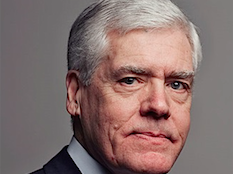Royal Bank of Scotland shareholders voted overwhelmingly to back the bank’s executive pay plan with more than 96% approving the proposals at the RBS annual general meeting in Edinburgh.
Sandy Crombie, chairman of the RBS remuneration committee, said the committee had been looking to develop a plan that aligned executives with shareholders predominantly through long-term shareholding.
“Therefore the shareholding requirements for executive directors will rise significantly, from 250% to 400% of salary for the chief executive and from 125% to 250% of salary for the chief financial officer,” said Crombie.
“The maximum long-term incentive award will be reduced by up to 40%, in line with the growing consensus on the need to restrain executive pay.
“As now, there will be a single long-term incentive, with no annual bonus …
“Another change is that long-term incentive awards will not be subject to pro-rating for good leavers.
“One factor in this decision is the regulatory restriction which has the effect of preventing long-term incentive awards being granted in the first year of employment.
“In addition, RBS is unusual in having no annual bonus for executive directors.
“Applying pro-rating where the construct is solely based on long-term incentive awards means that no variable pay can be awarded in respect of the final year of employment …
A further change is that the pension allowance for new executive directors will be reduced from 35% to 25% of salary.
“This brings the rate closer to that of the wider employee population and more in line with peers as well as FTSE100 companies …,” said Crombie.
“You may be aware of the press commentary following the publication of proxy advisor reports, in particular the recommendations against the new remuneration policy by ISS and PIRC.
“We disagree with the conclusions reached in these reports and strongly challenged the view from ISS that the level of discount was insufficient under the new construct.
“We subsequently re-engaged with a number of our major shareholders, and I am pleased to say that the vast majority indicated their continued support for our proposals …
“RBS has, since the financial crisis, been a market leader in showing restraint in executive pay and in seeking to move away from the unintended consequences of highly geared financial incentives.”
